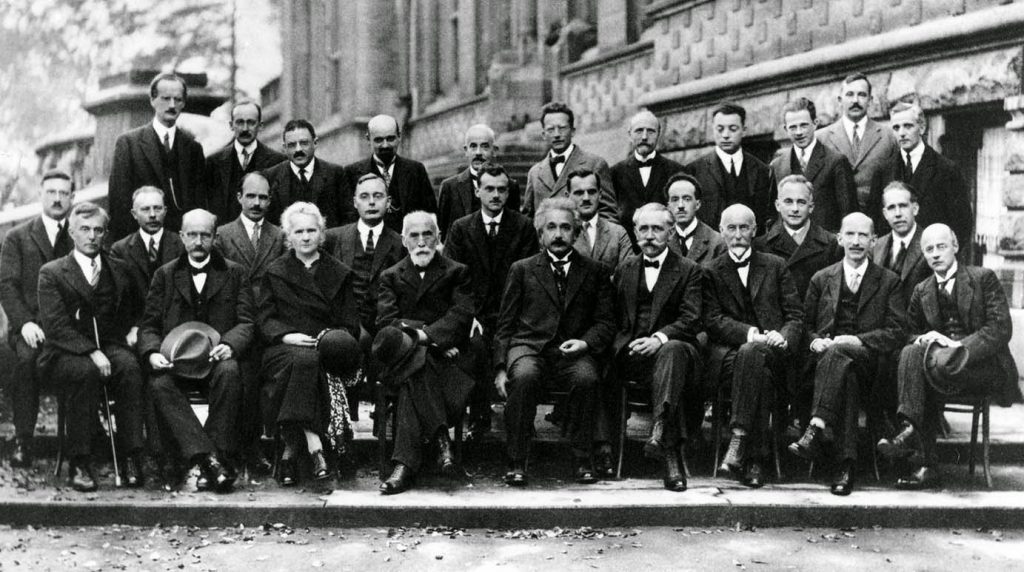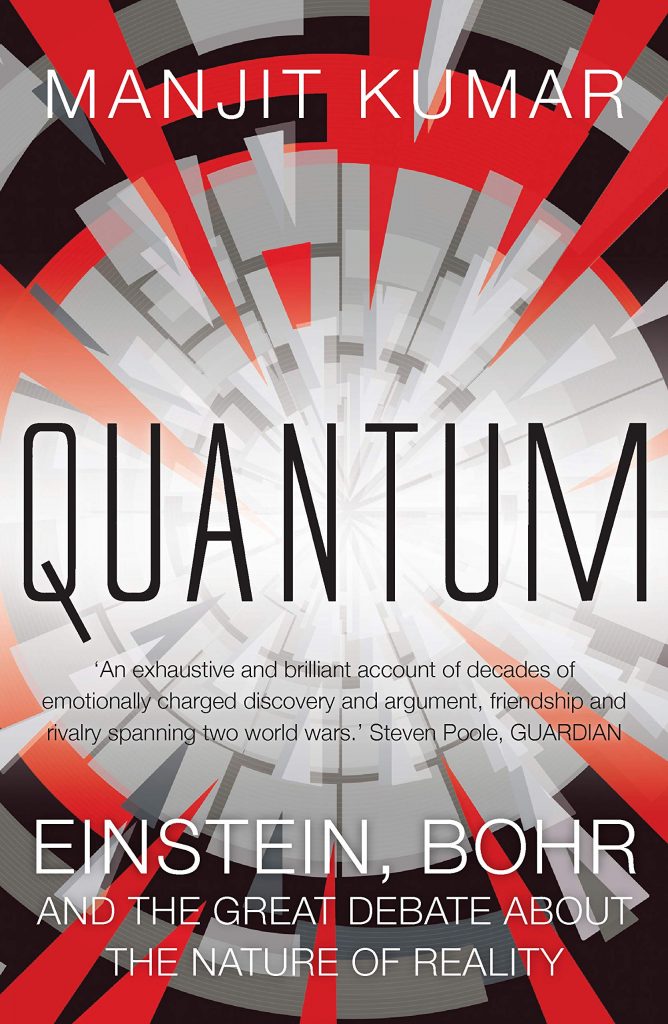🕒 3 min
“Anyone who is not shocked by quantum theory has not understood it.”
Niels Bohr (and others, with variation)

You have likely seen this image before, the so-called ‘most intelligent picture ever taken.’ It is a photograph of the participants of the Fifth Solvay Conference on Electrons and Photons from 1927. Many of these people went on to win Nobel Prizes, or were laureates already. Here, they met to discuss a new theory which eventually became one of the pillars of modern physics – quantum theory.
The word ‘quantum’ has been mystified to no end by popular media. You have no doubt heard examples of this before, whether in a scientific context or thrown in front of some otherwise mundane term in a movie to make it sound strange and important. This, combined with quotes such as the one above, makes quantum mechanics seem unapproachable and scary.
If you do manage to get past the wall of quantum scariness and try to learn about it, you might end up sympathizing with the general sentiment that it is impossible to understand. Quantum physics is hard. It is conceptually distant and its core ideas often seem to come out of nowhere, especially if your existing knowledge on related topics is limited. However, this does not mean it has to or should remain out of bounds for all but the most brilliant of researchers. Niels Bohr wasn’t trying to scare off people by saying it was shocking, he was trying to make them look again – and look deeper.

Manjit Kumar’s Quantum aims to break down that barrier. It doesn’t so much provide a conceptual understanding of quantum mechanics as it does a contextual one. It shows how baffling this new field was for the very scientists who built it up, all while telling the story of the decades-long process of doing so. It introduces the core ideas behind quantum mechanics incrementally and chronologically, showcasing each scientific milestone along the way.
Keep in mind that Quantum wasn’t written for complete non-physicists. It is also an excellent introduction into the actual science of it all and inevitably contains quite a bit of formal language. Still, it has been made as accessible as possible by providing a glossary and an array of resources for further reading.
Let’s go back to that famous photograph. The people in it helped bring about a revolution in physics and, with it, all of science. Just how (im)probable was it to have this many uniquely brilliant people living and working in science at the same time? Quantum explains that the special ingredient was not in who was part of this generation, but rather when they were alive. They were living at a time when the critical advances necessary to create new physics were made possible – and they put them to use. It is this historical context which makes their discoveries seem logical and, well, possible. The book also gives you some insight into the lives and interactions of the people who attended the Solvay Conferences, which were at least equally as interesting as their work.
A popular science book that gives a perfectly comprehensive but digestible overview of quantum physics might never be written. Each approach has its drawbacks because the subject matter is very unforgiving. However, if there is ever going to be the book on quantum mechanics, Quantum may just be the one.
If you’d like something focused more so on the concepts than their historical origins, In Search of Schrödinger’s Cat by John Gribbin is a good option. If you’d prefer something with less physical jargon, Uncertainty by David Lindley is an excellent alternative.
If you don’t have access to the book(s) but would still like an introduction to quantum mechanics, there are plenty of options online for you to look into:
1. A Brief History of Quantum Mechanics – Sean Carroll
2. The Titanium Physicist Podcast – Ben Tippet
Ben Tippet, the creator and host of the Titanium Physicist Podcast, challenges his guests to explain their work without excessive terminology. This makes it accessible to almost everyone, regardless of their background. Many episodes feature concepts from quantum mechanics, often mixed with popular culture.
Did we capture your interest? Have you already checked out something we mentioned? Do you have your own recommendations? Tell us your thoughts!
2 replies on “Quantum”
For the curious and moderately mathematically inclined, I’d also like to point out these lectures by Prof. Susskind. They’re not pop-science, nor a full-blown QM course; they occupy a place somewhere in the middle on that spectrum. And -according to me at least- they do a terrific job of getting the essence across.
https://www.youtube.com/playlist?list=PL09HhnlAMGuprvZVNjMRrF3MFTH2GoP4J
That is a terrific suggestion! Thanks, Elia 🙂